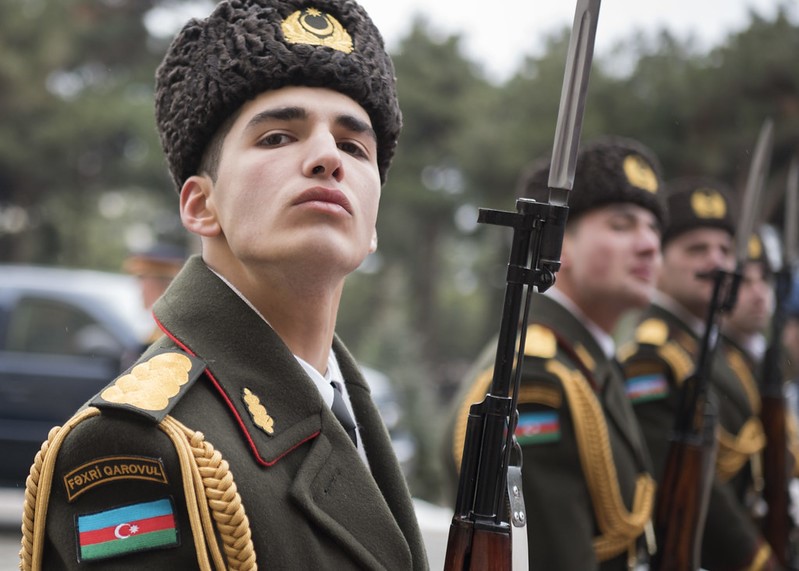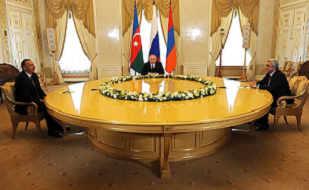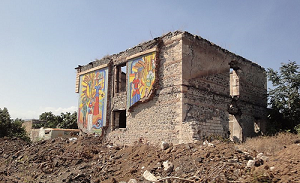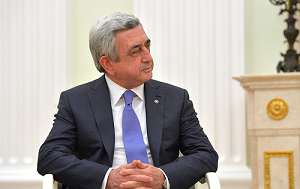Fighting in Nagorno-Karabakh Rages Despite Ceasefires
By Emil A. Souleimanov and Huseyn Aliyev
October 22, 2020, the CACI Analyst
The ongoing conflict in Nagorno-Karabakh saw a number of dramatic developments over the past couple of weeks. Most notably, Azerbaijani forces proved able to breach through Armenian defenses in the south, resulting in Azerbaijan’s rapid advance into both the Nagorno-Karabakh region and adjacent Armenian-controlled territories in the “buffer zone.” This battlefield transformation will likely affect the balance of power on the ground and influence Baku’s willingness and Yerevan’s capacity to negotiate a peaceful settlement. Recent developments on the frontlines will also affect Russia’s and Turkey’s positions and roles in the conflict and the South Caucasus.

Russia’s Iskander Adventures in the Caucasus
By Stephen Blank
May 12, 2017, the CACI Analyst
Since the occurrence of large scale fighting around Nagorno-Karabakh in April 2016, resulting in some Azerbaijani gains, there has been a widespread fear that this crisis could easily escalate out of control drawing in not only the two belligerents but also Russia and Turkey. Armenia’s response to the visible enhancement of Azerbaijan’s military capability has marked a qualitative escalation of the crisis’ military potential. Moreover, it has further unmasked the Russian policy of abetting the crisis rather than trying to resolve it, even though Moscow professes to be against renewed hostilities and to want a solution.

A Year After The “Four-Day War”, Guns Continue to Speak Louder than Diplomats in Nagorno-Karabakh
By Azad Garibov
April 21, 2017, the CACI Analyst
One year has passed since the “Four-Day War” – an unprecedented escalation of the Nagorno-Karabakh conflict on April 1-5, 2016 that claimed the lives of over a hundred soldiers on both sides. The conflict over Nagorno-Karabakh has never been truly frozen, yet the increased intensity of clashes since April 2016 demonstrates that violence can flare up at any time, destabilizing the already fragile region. As no peaceful solution is visible on the horizon, the Line of Contact (LoC) between Azerbaijan’s and Armenia’s armed forces has become the most militarized area of the former Soviet Union. Azerbaijani and Armenian societies have also grown increasingly nationalistic as fighting intensifies and casualty rates grow on the frontline.

Armenia’s Political Forces Get Ready for Parliamentary Elections
By Armen Grigoryan
March 20, 2017, the CACI Analyst
March 5 marked the start of official campaigning for Armenia’s parliamentary elections, scheduled for April 2, after which a parliamentary system will replace the current presidential one. Yet these elections are unlikely to bring about any significant changes in either the economic and social spheres or in Armenia’s pro-Russian foreign policy, given the dominant position of the ruling Republican Party of Armenia (RPA). The opposition running for election is fragmented and short of resources, and will compete in an election system favoring the RPA.

Advancing Georgian-U.S. security cooperation after the Trump transition
By Richard Weitz
January 19th 2017, the CACI Analyst
The Trump administration will soon undertake a comprehensive review of Russia-US relations and U.S. policy toward the rest of Eurasia. Although the new team will presumably consider many options, the president-elect’s statements imply that the U.S. will not soon support further NATO expansion or other actions that would strongly antagonize Moscow. Despite this limitation, the U.S. government will continue security ties with U.S. partners in Eurasia, such as Georgia. In practice, there are a number of steps the U.S. and Georgia can undertake to advance their mutual security.






